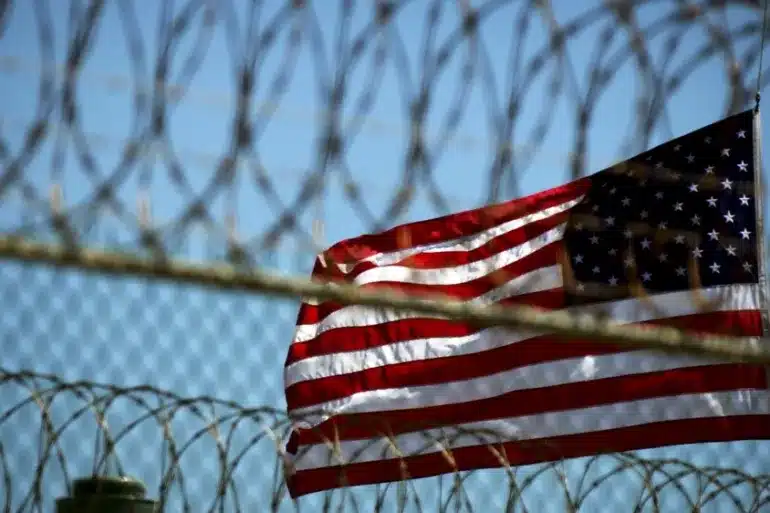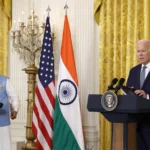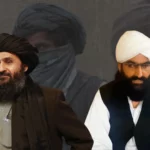Many individuals have been released since the United States (U.S.) moved towards shutting down the Guantanamo Bay prison by transferring or releasing long-held prisoners. The latest inmates released are two Pakistani brothers, Abdul and Mohammed Ahmed Rabbani, whom the U.S. detained at the Guantanamo Bay military prison. They spent two decades in one of the most gruesome prisons in the world for crimes they never committed. Like most Guantanamo inmates, no charges were brought against them, and no trials or judicial processes existed.
This release brought the number of prisoners at Guantanamo to 32, including 18 eligible for transfer.
Despite being approved for transfer, these prisoners at Guantanamo remain in detention without trial with little recourse to speed up their release.
Similarly, the U.S. government relocated a Guantanamo Bay prisoner, Majid Khan, a former Al-Qaeda courier, to Belize after he served his sentence. Khan, 42, from Pakistan, was confined for over 15 years.
An Indefinite Ordeal
The recent transfers and releases are a welcome development, but they highlighted the ongoing issue of indefinite detention at the camp. However, the U.S. government has been slow to act, and many remain in custody without trial. Andy Worthington, the co-founder of the Close Guantanamo initiative, stated that while it was positive news that Khan had been released, other prisoners who have been cleared for transfer have limited means to hasten their release. “The 20 men approved for release can go nowhere, and their release is entirely dependent on the whims of the U.S. government. And that shouldn’t be the case. It’s a problem related to the very foundation of Guantanamo that was established where the law didn’t apply.”
In a similar case, in October 2022, after 20 long years of injustice, suffering, exploitation, and oppression, Saifullah Paracha, a Pakistani prisoner detained at the Guantanamo Bay detention center, was released and sent back to Pakistan. His release was approved in May of last year after spending more than 16 years in detention at the U.S. facility in Cuba. Dubbed a “forever prisoner” by a UK-based human rights organisation called “Reprieve’, the 75-year-old was the oldest prisoner at Guantanamo Bay and was wrongfully held on suspicion of having ties to Al Qaeda despite never being charged with a crime.
What can be more disturbing than being proven innocent after two decades in the world’s most oppressive and brutal detention centre? Moreover, it took nearly 20 years for the U.S. to decide whether he was a ‘threat’ or not, as mentioned in the U.S. department of defense’s statement that “the detention of Saifullah Paracha was no longer necessary to protect against a continuing significant threat to the security of the United States”, which is no doubt a shameful statement to be made on behalf of the U.S. administration.
Guantanamo Bay: Tales of Injustice and Abuse
Following the terrorist attacks of September 11, 2001, a covert U.S. military prison was built to house alleged al-Qaeda militants apprehended during the invasion of Afghanistan. Since it opened, Guantanamo has gained a bad reputation for violating human rights, and the detainees were not entitled to any protection under international law.
Many hundreds were released after years of detention without any charge, and many spent more than ten years in prison without having a way to contest their detention legally.
Guantanamo Bay and similar detention centres are a blow to international laws’ existence, effectiveness, and applicability. It’s a massive setback to all the values of ‘liberal democracy and human rights that the West always preaches. In an interview, a former inmate at Guantanamo, Mansoor Adayfi, said, “And also it is [abusive] to the American justice system and to the American people. Guantanamo hasn’t achieved any justice for anyone—not for the 911 victims, Americans, or the detainees.”
The continued detention of prisoners at Guantanamo Bay who have never been charged with a crime raises serious questions about the rule of law and the principles of due process. The United States’ decision to hold these individuals outside the jurisdiction of the U.S. legal system and to deny them access to counsel and a fair trial violates fundamental human rights and undermines the country’s claim to being a beacon of freedom and democracy.
Besides physical abuse and humiliation, psychological mistreatment and suffering have a long-lasting impact on the detainees. Many innocent men have waited for years in the Guantanamo detention centre in the darkness of death. Even though some are freed after decades of captivity, the darkness and torture they suffered will haunt them for the rest of their lives. Even after their release, they are still in jail because many are not rehabilitated and resettled well; most have no I.D.s or passports and are stuck forever in a place unknown to them.
Closure and Accountability
This year, in January, Guantanamo turned 21.
This chapter on immoral detentions and abuse in the U.S. war on terror resonates with morally repugnant threads of unimaginable abuse, torture, and psychological mistreatment.
The international law and war laws on prisoners’ treatment fail here, as they have never been applied to the CIA’s secret detention centres.
Guantanamo Bay has been the subject of debate for more than two decades now. It serves as a sombre memorial to the U.S.’s breaches of human rights in the name of national security and will keep haunting liberal democratic values. All the secret detention centres have left a ‘disturbing legacy’ of grave human rights violations and abuse in the name of ‘countering terror.’ One of the most disturbing aspects of this saga is that the U.S. is permissible to disregard human rights and the humane treatment of detainees in the name of ‘fighting terrorism’ where and whenever it wants.
The U.S. should come clean and confess. All those involved in terrorist activities must be brought to justice. And all those who imprisoned, tortured, and killed unarmed men, women, and children to fight terrorism must also be held accountable. The world will not be peaceful until all the guilty are punished. But unfortunately, we live in a world where, as George Orwell states in his famous work ‘Animal Farm,’ “all animals are equal, but some animals are more equal than others.”
We can still hope and demand, whether it is the Rabbani brothers, Saifullah Paracha, Mansoor Adayfi, or any other individual tortured, that justice is served to all who suffered unimaginable pain. These inmates fought and are still fighting an unfathomable battle of mind and body. Justice should not be preached but shown through action and conduct. The international law regulatory bodies must try all those involved in the abuse, torture, and injustice at Guantanamo Bay. Punitive measures, including accountability and an international tribunal like the Nuremberg Trial, are urgently needed.
The two decades of Guantanamo’s existence echo controversy more than counter-terrorism. Injustice should end; before Guantanamo turns 22, it must be closed down.
The views expressed in this article are the author’s own. They do not necessarily reflect the editorial policy of the South Asia Times.
Mariam Shah, a PhD Scholar at the National Defense University, specializes in conflict analysis, terrorism, and military psychology, employing multidisciplinary approaches to research complex societal issues.


![Al-Qaeda, TTP, ISKP in Pakistan's backyard: Pakistani troops observe the area from a hilltop post in Khyber district [File: Anjum Naveed/AP]](https://southasiatimes.org/wp-content/uploads/2022/10/AP21312682025351-1-150x150.webp)


Add a Comment